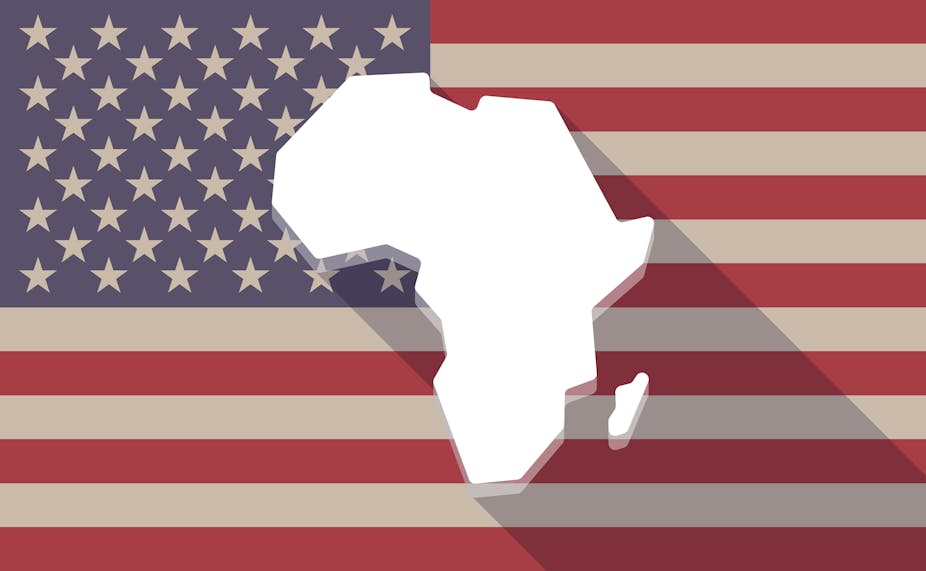
The deaths of three members of the U.S. Army Special Forces members this week in Niger hardly made headlines. Nevertheless, this event illustrates continued U.S. involvement in one of the central theaters of the fight against terrorism: the African continent.
President Trump has shown only limited interest and an incomplete, but imaginative, knowledge of Africa. His mention of a nonexistent country, “Nambia,” during a speech in front of African heads of state in New York at the end of September, attests to this. However, the policy that he seems to want to implement is in line with that of his predecessors and conforms with the prevailing consensus in Washington.
Key Theater in the Fight
Over the past two decades, the U.S.’ stated ambition has been to give its African partners the means to ensure their development and to combat the obstacles, whether natural or man-made, that they face. This vision is at the heart of the African Growth and Opportunity Act signed into law by President Clinton, marking his desire to make Africa a trading partner and not simply a recipient of humanitarian and developmental aid.
Significantly lowering the trade barriers for products from the African continent, this law has helped to triple trade between the United States and the continent since the early 2000s. With bipartisan support, AGOA was reaffirmed under George W. Bush and renewed under Barack Obama until 2025.
At the same time, American policymakers, whether Republican or Democrat, tend to consider Africa primarily from the perspective of security issues, especially after 9/11. The presence of Islamist radical groups (from Boko Haram to Islamic State, along with al-Qaida), acts of piracy, illicit trafficking and transnational crime are perceived as threats, not just to African countries, but also to the United States and their other partners, notably Europeans.
Thus, it’s not all that surprising that U.S. military engagement in Africa is important. It essentially takes two forms: the construction of a vast network of bases on the one hand, and massive investments in training and equipment for local security forces on the other. The episode this week demonstrates the extent to which this second component entails risks for U.S. military personnel who accompany their local partners too close to combat.
The Limits of the Security Prism
Much worse, however, are the training programs for local security forces, which translate too often into failure. The main reason, in Africa as well as Iraq, Afghanistan, and Vietnam in the 1960s and ‘70s, is that the countries in which the U.S. is implementing these programs are falling apart. These countries suffer from economic problems, social divisions, inadequate government institutions, more or less widespread corruption and political leaders who often lack legitimacy. This cocktail is thus ripe for sowing insurrectionist movements, maintaining a climate of violence, and exacerbating pre-existing flaws and weaknesses.
Concerning its bases on the African continent, the United States only officially recognizes three: Camp Lemonier in Djibouti and two bases for drones in Niger (one in Niamey, the other in Agadez). Beyond these, the Pentagon has developed, over the course of the past few years, a vast network of facilities used primarily for intelligence gathering, prepositioning of equipment, and special forces operations.
If President Trump doesn’t seem to have reflected deeply on the question of Washington’s Africa policy, his disinterest and his poor knowledge of Africa could have two unfortunate consequences. First, the promotion of democracy, the rule of law, and human rights were central in the rhetoric of the last three U.S. administrations with respect to the continent. Trump doesn’t appear sensitive to these themes. If there is an end to a certain hypocrisy in American discourse, it risks aligning the United States with authoritarian regimes on the continent.
Second, Donald Trump’s lack of diplomatic investment in Africa risks weakening U.S. influence with international institutions. The 53 states on the African continent are indeed heavyweights in the United Nations General Assembly, as well as the World Trade Organization. If the Trump government abandons this enterprise, it can hardly be doubted that other countries aspiring to international influence will try to fill the void, with China in the lead.

Leave a Reply
You must be logged in to post a comment.